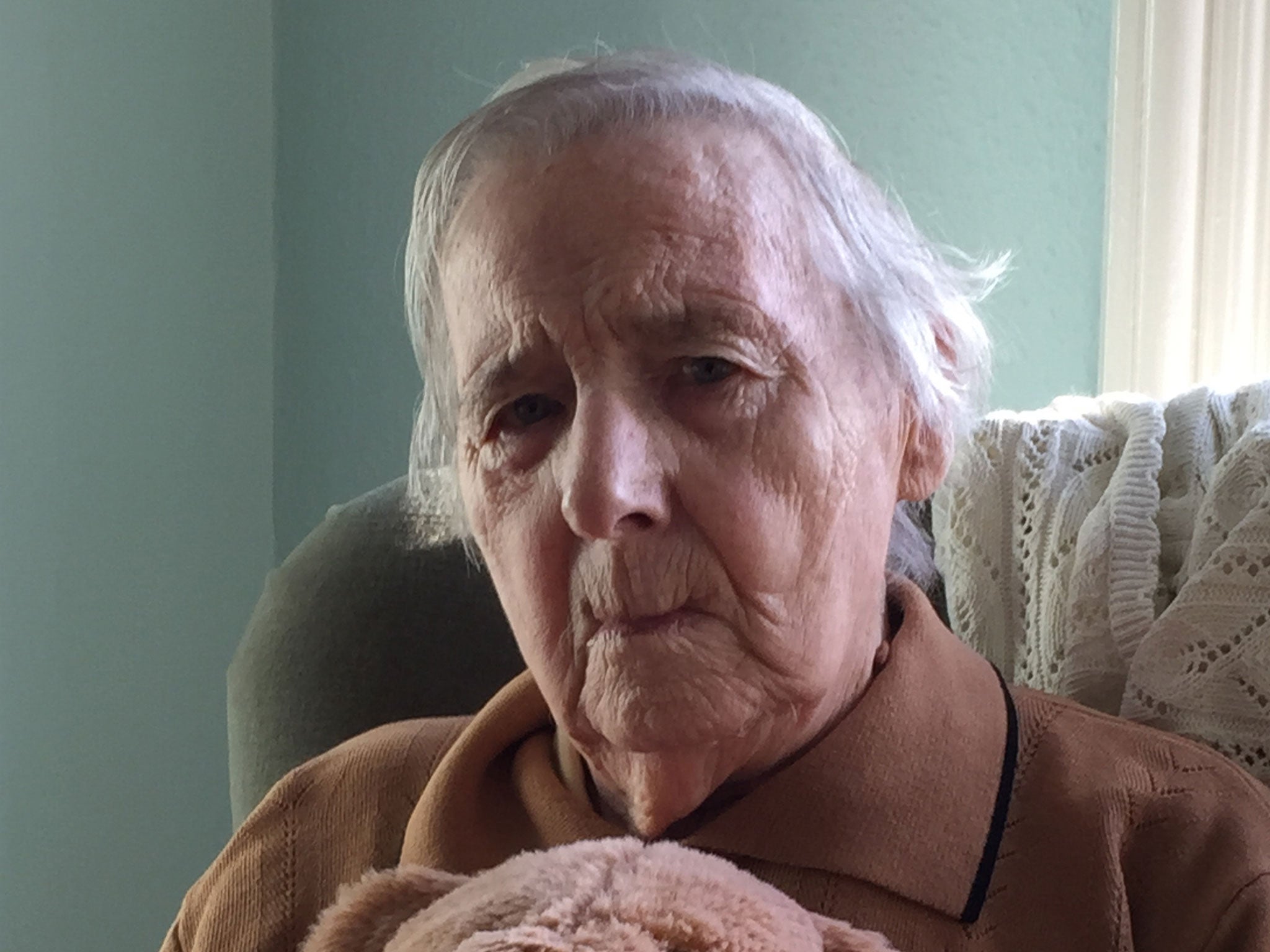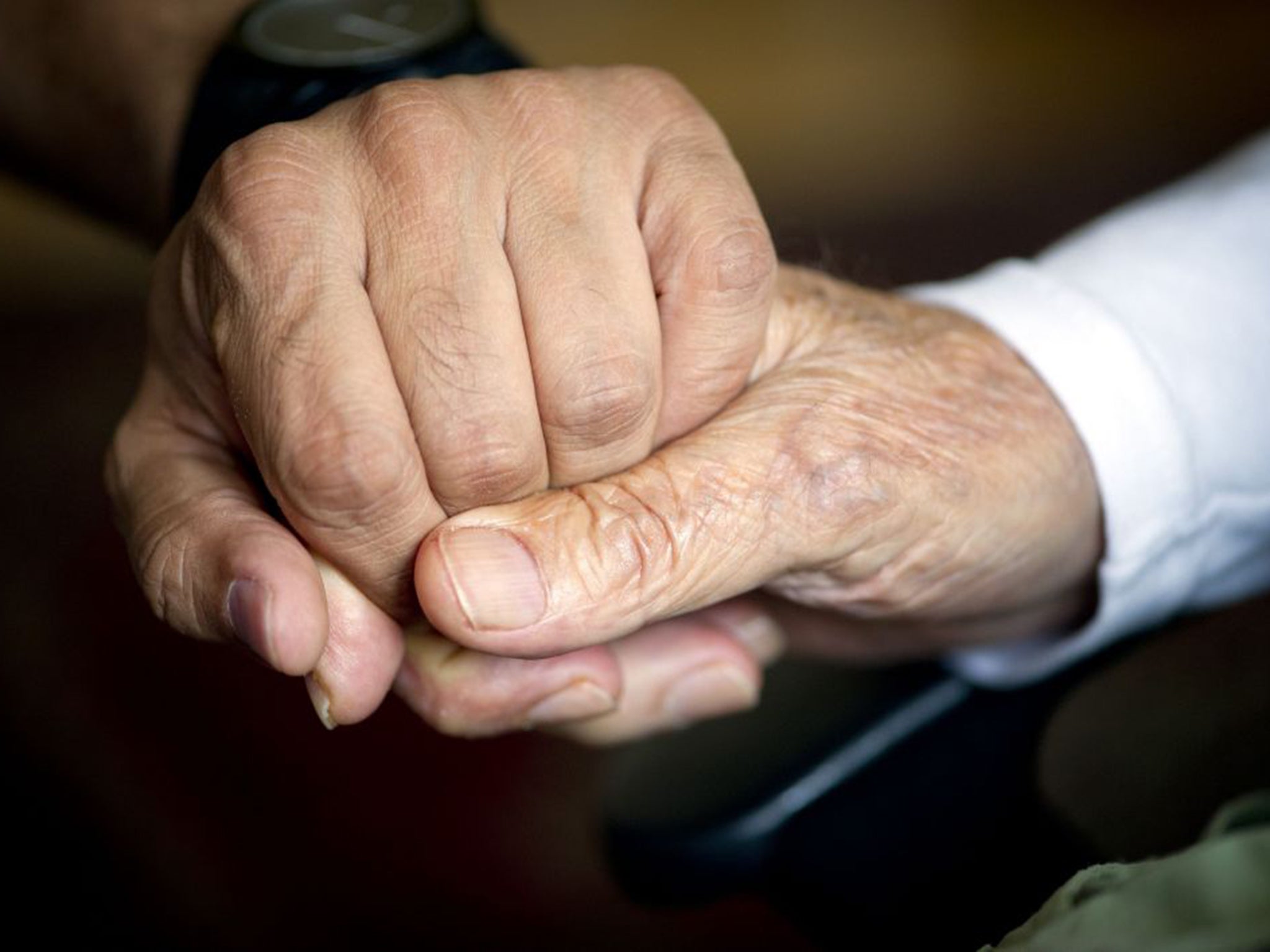Relatives of dementia sufferers who die in care homes having to wait months to bury loved ones thanks to new Government rules
Exclusive: New rules say state inquests into the deaths must take place prior to a funeral

Your support helps us to tell the story
From reproductive rights to climate change to Big Tech, The Independent is on the ground when the story is developing. Whether it's investigating the financials of Elon Musk's pro-Trump PAC or producing our latest documentary, 'The A Word', which shines a light on the American women fighting for reproductive rights, we know how important it is to parse out the facts from the messaging.
At such a critical moment in US history, we need reporters on the ground. Your donation allows us to keep sending journalists to speak to both sides of the story.
The Independent is trusted by Americans across the entire political spectrum. And unlike many other quality news outlets, we choose not to lock Americans out of our reporting and analysis with paywalls. We believe quality journalism should be available to everyone, paid for by those who can afford it.
Your support makes all the difference.Relatives of dementia sufferers who pass away in care homes are being forced to wait months to bury loved ones because of new rules.
Families are being caught up by regulations that require state inquests into the deaths of many Alzheimer’s sufferers before funerals can take place - even when there is little mystery over the cause of death.
The delays are linked to an expansion in the use of Deprivation of Liberty Safeguards (DoLS), which are intended to make sure that people in care homes, hospitals and supported living are looked after in a way that does not inappropriately restrict their freedom. The number of Alzheimer’s patients subject to DoLS is increasing following a Supreme Court judgement last year that effectively lowered the threshold for what constitutes deprivation of liberty in care.
When those subject to the safeguards pass away they are considered to have died ‘in state detention’ - meaning an inquest is necessary. Many families are entirely unaware of the rules, and say the inquests are unnecessary as their relative’s death was clearly linked to their age and health condition.
Ann Hughes was subject to the safeguards when she died, aged 90, on 7 April in her west London care home. Her family were left angry and distraught having been forced to wait two months to arrange her funeral due to delays in arranging an inquest.
Ann’s niece and next of kin Marsha Rice said: “I signed Ann’s DoLS papers last October but nowhere did it mention an inquest would have to take place. It is completely unnecessary and came as a huge shock. Her GP knew nothing about the rule – nor did the undertaker who told me after two days after he’d taken Ann’s body that he shouldn’t have done so. Her body has remained with the undertaker since she died.”
West London Coroner’s Court sent Mrs Rice documents to sign giving her consent for a paper inquest.
She said: “A few weeks after that paperwork arrived I got call saying they could the Coroner could not process the inquest as Ann had not been formally identified, but the undertaker said she was no longer available for viewing.”
Mrs Rice eventually received a call from the Coroner “apologising profusely” for the delays. She was finally able to collect Ann’s death certificate this week and the funeral will be held on 9 June – more than two months after she died.

“The lack of knowledge about these rules is extraordinary,” Mrs Rice said. “There is so little information about what you need to do in these circumstances and confusion abounds. It is so inappropriate to put dementia sufferers in the same category as prisoners in handcuffs.
“Who actually benefits from these safeguards? It’s a box ticking exercise and I’m just so glad it’s finally over.”
Most of the 113,000 DoLS applications this year – a tenfold rise on 2014 - concern vulnerable people with dementia. More than one in three (36 per cent) were granted, according to figures released by The Health and Social Care Information Centre this month.
The application of such order to people with Alzheimer’s in hospitals and care homes subject is “widespread and increasing” according to the Chief Coroner’s office.
The previous Government announced it would provide an extra £25m in 2015-16 to help councils manage the pressures on DoLS caseloads brought by the Supreme Court judgement.
George McNamara, head of Policy and Public Affairs at Alzheimer’s’ Society said: “We do hear of cases where families face additional distress because of the mandatory coroner’s inquest following the death of a relative with a DoLS in place. DoLS are important for people with dementia to make sure they are not being wrongly deprived of liberty but the current system is complicated and there is lack of awareness about the process. This needs urgent review.
“It’s important that care homes are encouraged to improve communications with families about DoLS, including explaining to families that if the person dies then an inquest will be required and what that might involve.”
The Law Commission is currently reviewing DoLS provisions and will report in 2017 with recommendations for reform and a draft Bill.
A spokesman for the Chief Coroner said: “Parliament created Deprivation of Liberty Safeguards which, as the wording states, deprives people, often elderly people, of their liberty but with a view to keeping them safe. Parliament also intended that if they die deprived of their liberty that they should be considered to have died ‘in state detention’. They mean that coroners have a duty to investigate each such case; they have no choice.
“The Chief Coroner has simply advised coroners of the implications of the [law], so that they know how best to proceed. Release of the body by the coroner for burial should not be delayed in these cases and in most such cases the coroner’s investigation can be completed within a matter of weeks.”
Join our commenting forum
Join thought-provoking conversations, follow other Independent readers and see their replies
Comments